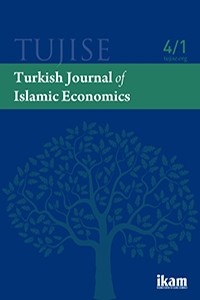THE EFFECTS OF MARKETING MIX ON CONSUMER SATISFACTION: A LITERATURE REVIEW FROM ISLAMIC PERSPECTIVES
THE EFFECTS OF MARKETING MIX ON CONSUMER SATISFACTION: A LITERATURE REVIEW FROM ISLAMIC PERSPECTIVES
Customer satisfaction is one of the essential factors for the success of a company. To achieve the high customer satisfaction, companies must know when and how their customers are satisfied about the products and services. Nowadays, different companies follow different types of marketing strategies based on the target market demand. The majority of companies follow a conventional marketing strategy, but some companies choose to follow a religious or spiritual marketing strategy such as the Islamic marketing strategy. Conventional marketing strategies satisfy the customers based on the current needs of the customer, whereas, Islamic marketing strategies satisfy the customers based on the human values, marketing cultures, and Islamic rules and regulations (shariah laws). Apart from conventional marketing strategies, the Islamic marketing strategies more focus on religious rules and ethics which do not exist in conventional marketing. Thus, this study discusses how marketing mix (product, price, place and promotion) influences customer satisfaction from Islamic perspectives and why it is necessary for the consumers.
Keywords:
Marketing mix Customer satisfaction, Islamic marketing,
___
- Abdullah., K., & Ahmad, M. I. (2010). Compliance to Islamic marketing practices among businesses in Malaysia. Journal of Islamic Marketing, 3, 286-297.
- Alom, M. M., & Haque, M. S. (2011). Marketing: an Islamic perspective. World Journal of Social Sciences, 1(3), 71-81.
- Anderson., E. W., Fornell., C., & Lehmann., D. (1994). Customer satisfaction, market share, and profitability: findings from Sweden. Journal of Marketing, 58, 53-66.
- Arham, M. (2010). Islamic perspectives on marketing. Journal of Islamic Marketing, 1(2), 149-164.
- Chartered Institute of Marketing (2004). 10 Minute Guide, (n.d.) Promotional Mix. Available at: http://www.cim.co.uk
- Goi, C. L. (2009). A review of marketing mix: 4Ps or more? International Journal of Marketing Studies, 1(1), 2-15.
- Hallowell., R. (1996). The relationship of customer satisfaction, customer loyalty, and profitability: an empirical study. International Journal of Service Industry Management, 7, 24-42.
- Hanna, M., & Dodge H. R. (1995). Pricing: Policies and procedures. Hampshire and London: Macmillan press LTD.
- Hassan, A., Chachi, A., & Latiff, S. A. (2008). Islamic marketing ethics and its impact on customer satisfaction in the Islamic banking industry. JKAU: Islamic Econ., 21(11), 27-46.
- Koku, P. S., & Jusoh, O. (2014). Where do we go from here? Towards a theory in Islamic marketing. Journal of Islamic Marketing, 5(3), 366-378.
- Kotler., P., & Armstrong, G. (2004). Principles of Marketing. New Jersey: Pearson Education Inc.
- Kotler, P., Keller, K. L., Koshy, A., & Jha, M. (2009). Marketing management-a South Asian perspective. 13thEdition. New York: Pearson Prentice-Hall.
- Mohiuddin, M. G., & Haque, M. S. (2012). Behaving ethically: An essence of Islamic marketing system. European Journal of Business and Management, 4(16), 34-44.
- Saeed., M., Ahmed., Z. U., & Mukhtar., S. M. (2001). International marketing ethics from an Islamic perspective: a value-maximisation approach. Journal of Business Ethics, 32, 127-142.
- Syed., M. H. (2008). Business in Islam. Delhi: Anmol publications.
- Başlangıç: 2014
- Yayıncı: Research Center for Islamic Economics (ikam)
